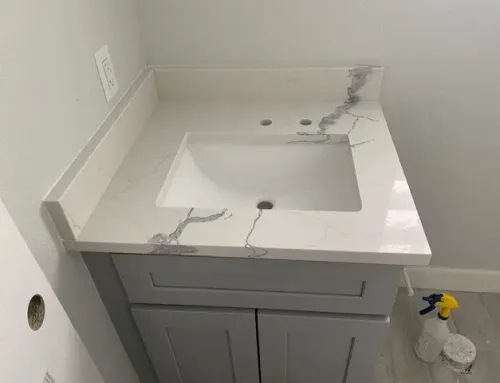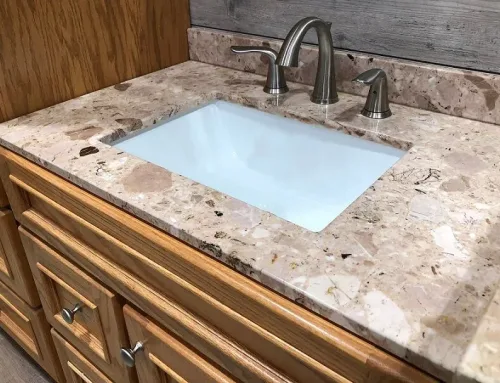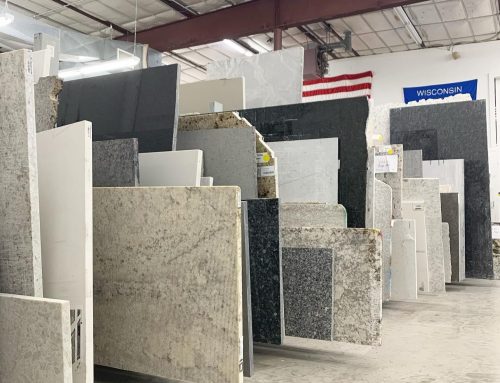How difficult is it to install countertops? When it comes to home renovations, installing new countertops might seem like a manageable DIY project. After all, how hard can it be to place a slab of stone or quartz onto your cabinets? The reality, however, is far more complex. Countertop installation is an intricate, labor-intensive process that requires precision, specialized tools, and expertise. If you’re considering tackling this project on your own, you may want to think again. Here’s why countertop installation is best left to the professionals.
The Challenges of Installing Countertops
1. Heavy and Fragile Materials
Countertops, especially those made of granite, marble, quartz, or quartzite, can weigh hundreds of pounds. Moving them without proper equipment or assistance increases the risk of dropping and cracking the slab—or worse, injuring yourself in the process.
2. Precise Measurements Are Crucial
Even the slightest miscalculation in measurements can result in a countertop that doesn’t fit properly. Professionals use laser measurements and templates to ensure that every cut is exact. A DIY approach with a standard tape measure and hand tools often leads to costly mistakes.
3. Cutting and Shaping Are Complex
Most countertops require precise cuts for sinks, faucets, and cooktops. Cutting stone or quartz without professional-grade saws and polishers is nearly impossible to do correctly. One wrong cut can render an entire slab unusable, wasting both time and money.
4. Seams and Edges Require Expert Finishing
If your countertop requires multiple pieces, ensuring the seams are smooth and nearly invisible takes skill. Also poorly aligned seams and rough edges can ruin the aesthetic appeal of your new kitchen or bathroom. Professionals use adhesives, polishing tools, and experience to create seamless joints and flawless edges.
5. Proper Support and Leveling Matter
Countertops need to be perfectly level and properly supported to avoid future cracks and structural issues. Moreover achieving this level of precision without professional tools and experience can lead to an uneven or unstable installation.
6. Backsplashes and Adhesives Require Knowledge
Attaching a backsplash and sealing the countertop correctly is a delicate process that involves strong adhesives and grout. Additionally using the wrong materials or techniques can result in gaps, water damage, or improper adhesion.
7. Plumbing and Electrical Work May Be Needed
If your countertop installation involves a new sink or cooktop, you’ll likely need to modify plumbing and electrical connections. Improper handling of these elements can lead to leaks, electrical hazards, or code violations.
Why Hiring Professionals Is Worth It
Given the many challenges of countertop installation, hiring a professional ensures:
✅ Perfect fit and seamless installation – No measuring mishaps or awkward gaps.
✅ No risk of material damage – Pros know how to handle and transport heavy slabs safely.
✅ Access to specialized tools – Industrial-grade saws, polishers, and adhesives make all the difference.
✅ Structural integrity – Your countertops will be properly supported and leveled.
✅ No costly mistakes – Avoid wasting expensive materials due to cutting or fitting errors.
✅ Peace of mind – Professionals guarantee their work, so you won’t have to worry about repairs or adjustments.
Final Verdict: Leave It to the Experts
So how difficult is it to install countertops? While a DIY countertop installation might seem like a way to save money, it often leads to frustration, costly errors, and potential safety hazards. The precision, labor, and expertise required make this a job best suited for trained professionals. If you want a flawless, stress-free installation that enhances the beauty and functionality of your space, invest in a professional installer. Your kitchen (and your back) will thank you!





